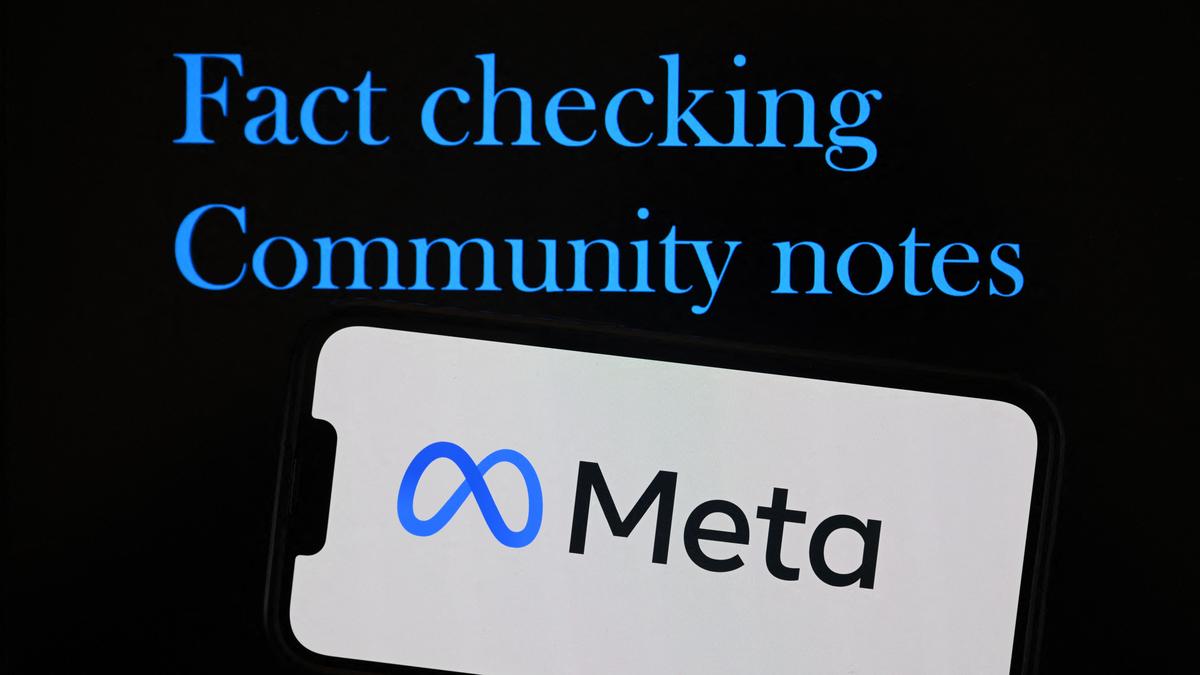Claim:
Meta’s decision to end its third-party fact-checking partnerships will negatively impact India’s ability to tackle misinformation, particularly in public health.
Fact:
True. Meta’s move to phase out professional fact-checking and transition to a community-driven content moderation model poses a serious threat to public health, digital literacy, and national stability in India.
Why This Matters
Meta—parent company of Facebook, Instagram, and Threads—has billions of users worldwide, including a massive user base in India. Its platforms have served both as vital information sources and as conduits for falsehoods. The company’s recent shift away from third-party fact-checkers to a “crowd-sourced” moderation approach is being framed as a move toward greater transparency and decentralization.
But what does this really mean for a country like India?
India’s information ecosystem is uniquely fragile. Here, social media is not just entertainment—it’s a primary source of news, health advice, and community mobilization. And while the potential for good is undeniable, the risk of harm from unchecked misinformation is far greater.
Health Misinformation is Not Harmless
During the COVID-19 pandemic, India witnessed firsthand how dangerous misinformation could be. False claims about miracle cures, vaccine side effects, and unscientific treatments spread faster than accurate medical advice. The result? Confusion, panic, treatment delays, and in many cases, avoidable deaths.
Without professional fact-checkers to verify and flag falsehoods, platforms risk becoming echo chambers of pseudoscience, superstition, and political propaganda.
Why Community Fact-Checking Won’t Work for India
Meta’s argument for a “community-driven” system ignores a critical truth: not all communities are equally equipped to verify information. India’s digital landscape is marked by vast inequalities—linguistic, educational, and economic.
- Millions still rely on forwarded messages on WhatsApp as medical advice.
- A large section of the population lacks the media literacy required to differentiate fact from fiction.
- In rural and semi-urban areas, social media often becomes the sole source of news.
Handing over the responsibility of content verification to the very users who are most vulnerable to misinformation is not empowerment—it’s abandonment.
The Broader Threat to National Security
Health misinformation is not just a public safety concern. It can spiral into a national security crisis. When misinformation spreads unchecked, it undermines public trust in institutions, weakens social cohesion, and creates fertile ground for political manipulation.
India’s diversity is its strength—but also a challenge. In a society where identities, beliefs, and languages are so varied, misinformation can act as a wedge, destabilizing communities and eroding governance.
Meta’s Incentives are Clear—and Problematic
Let’s be honest about Meta’s business model. The platform thrives on engagement: likes, shares, comments, and views. Controversial or emotionally charged content performs best—often regardless of whether it’s true.
In other words, Meta’s financial interest in keeping users engaged may be directly at odds with efforts to curb misinformation. Removing fact-checkers removes a speed bump from the algorithmic highway of virality.
What Can India Do?
India cannot afford to be passive. The government, civil society, and the technology sector must act decisively to contain the fallout of Meta’s retreat.
1. Establish a National Fact-Check Framework
India should set up a central body composed of health experts, media professionals, and technology leaders to counter misinformation with speed and authority.
2. Strengthen Legal Accountability for Platforms
Social media companies must be held legally accountable for allowing harmful misinformation to circulate unchecked.
3. Invest in Digital Literacy and Public Education
No anti-misinformation strategy can succeed without empowering citizens. Media literacy campaigns should be integrated into school curriculums, public service announcements, and community outreach.
4. Build Real-Time Monitoring Infrastructure
India can take cues from successful global models, such as Taiwan’s Fact Check Centre, and adapt them to the Indian context.
5. Collaborate with Platforms on Local AI Solutions
Rather than abandoning moderation, Meta should work with Indian agencies to develop AI tools trained in regional languages and cultural contexts to identify and limit misinformation.
Conclusion: The Cost of Inaction Is Too High
Meta’s withdrawal from professional fact-checking is not just a policy shift—it’s a warning. It signals a future where public health is left vulnerable to viral falsehoods, and truth becomes a casualty in the race for engagement. In India, where the stakes are higher due to scale, diversity, and structural gaps, such a move could have devastating consequences.
Truth cannot be left to chance. As the ancient Indian wisdom reminds us, “Satyameva Jayate”—Truth Alone Triumphs. But truth requires defenders. And now more than ever, India must rise to defend it. At FactCheck India, we stand as unwavering defenders of truth, committed to ensuring that only accurate, reliable information triumphs in the face of misinformation, safeguarding public trust and well-being.

